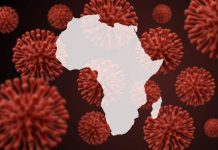The Benin Republic delegation to the ECOWAS parliament has attributed to country’s economic boom to the reopening of its border with Nigeria.
In its report to the parliament, the delegates also said the effective start of construction work on the Benin-Niger pipeline and the intensification of socio-economic infrastructure construction activities have helped the nation recover from coronavirus.
“In 2021, the global economy shows a recovery in activity, albeit differentiated according to country. The positive outlook is linked not only to expected positive developments in most economies, including developing countries, but also to further fiscal support measures in a few developed countries, expectations of a vaccination-led recovery in advanced countries in the second half of 2021 and the continued adjustment of economic activity to reduced mobility,” the report said.
“For example, according to the IMF’s latest World Economic Outlook (WEO) update in January 2022, global growth is expected to reach 5.9% in 2021 and then slow to 4.4% in 2022, after a 3.2% recession in 2020. ECOWAS Member Countries have not been immune to the effects of the pandemic.
“At the national level, the evolution of the economic situation in 2021 has been marked by:
- the opening of Nigeria’s borders and the resumption of traffic at the Port of Cotonou;
- the effective start of construction work on the Benin-Niger pipeline;
- the intensification of socio-economic infrastructure construction activities.
“On this basis, the economy is expected to grow by 7.0% in 2021, compared to an initial forecast of 6.0%, after an estimated 3.8% in 2020. By the end of December 2021, the inflation rate at national level, according to the definition adopted, is +1.7%. The level is below the 5% threshold set under the ECOWAS macroeconomic convergence mechanism exercise”.
Read full report below:
Rt. Hon. Speaker of the ECOWAS Parliament,
Honorable Members of the Bureau of the ECOWAS Parliament
Dear Colleague MPs
This report forms part of the ECOWAS Parliament’s First Ordinary Session for year 2021, which holds from June 09 to July 02, 2022 in Abuja, Nigeria.
Indeed, one of the essential items on the agenda of the said Session is the presentation of country reports.
This report, written in accordance with the outline indicated, will give the regional representation an image of the activities in my country Benin.
1. POLITICAL SITUATION
1.1. Political reforms in Benin
In terms of its political reforms, Benin is heading towards legislative elections in 2023. Given these deadlines, the Electoral Council referred the matter to the Constitutional Court on the official date of the elections in the light of the new provisions of law 2019-43 of 15 November 2019 on the electoral code in the Republic of Benin. Thus, the decision of the Constitutional Court DCC22-065 24 February 2022/Appeal for an opinion of the Court on the legal date of the legislative elections of 2023, published on 24 February 2022, stipulates that in view of:
- Under Article 157-3, the new provisions governing the election of Members come into force at the time of the 2023 legislative elections
- Under Article 153-2 of the Constitution, legislative elections and the taking up of office of elected Members should be held on the second Sunday of January and the second Sunday of February of the electoral year respectively.
Thus, the next legislative elections are scheduled for 8 January 2023 and the taking up of duties of Members of the 9th Legislature on 12 February 2023.
As a prelude to the so-called elections, the Mediator of the Republic, Pascal Essou, invited political parties to a political dialogue which was held from 25 April 2022 to 5 May 2022. He thus gathered suggestions from political parties for the peaceful organization of the said election scheduled for 8 January 2023.
2. SECURITY SITUATION
The sub-regional security situation continues to be marked by terrorism, in addition to the activities of transnational criminal organizations and inter-community conflicts.
In recent months, there has been a strong south-ward spread, of the influence of terrorist groups that are rife in the front-line countries (Mali, Burkina Faso, Niger). This poses a serious threat to coastal countries and indicates the precariousness of sub-regional security, even if the situation still appears to be under control.
As a result, since December 2019, Benin has been victim of assaults by terrorist groups operating in the region, particularly in its northern zone, the Tri-border area. The deadliest assault killed nine people, including a French instructor, on 8 and 10 February.
In response, Benin government has accelerated its response strategy. It has provided the Beninese armed forces with substantial financial resources not only to equip them, but also to recruit and train the staff. In addition, inter-state cooperation on security and defense is being organized and the “Accra Initiative” has been set up, bringing together Ministers of Internal Security and Defense of Benin, Burkina Faso, Togo, Côte d’Ivoire, Ghana and Niger.
The Accra Initiative is a security organization set up by governments of member countries to pool their efforts and resources for concerted action to reduce and then eradicate the negative influence of terrorism.
3. HUMAN RIGHTS SITUATION
3.1. State of Operations of the National Commission / Agency on Human Rights
The Beninese Human Rights Commission, established by Law No. 2012-36, adopted by the National Assembly in its December 17, 2012 sitting, operates normally apart from the management difficulties common to any structure.
As part of the renewal of the members of the commission for a new mandate; Parliament to appoint its members to sit on the said committee.
Members of the said committee have already taken the oath.
3.2. Specific Situation/Measures relating to: Protection of Women’s Rights
The protection of women’s rights is a reality in management practices in Benin. A strong signal was given in July 2021 with the establishment of the National Institute for Women, a body that will guarantee the protection, promotion and respect of women’s rights in the Republic of Benin. Subsequently, several laws were passed to strengthen the legislative corpus on women’s rights and to continue building a more equitable society. These include:
- Law 2019-43 of 15 November 2019 on the electoral code in the Republic of Benin, which henceforth increases women’s representation in the National Assembly to 30% from the next legislative elections in 2023.
- Law 2021-12 amending and supplementing Act 2003-04 of 3 March 2003 on sexual and reproductive health in the Republic of Benin will make it possible to save many women’s lives by resorting to clandestine abortion.
- The adoption of Law No. 2021-11 on special measures for the suppression of gender-based violence and the protection of women. These violations are predicated on the sex of the victim and include sexual harassment, sexual assault, rape, early marriage, female genital mutilation and aggravated violence against women and girls.
Benin, open to the world, like all countries in the world today, experienced its first case on 16 March 2020. In May 2022, Benin has a positivity index of 1.3% which can be explained as follows:
- confirmed: 26309;
- Recovered: 25540 (98,4%);
- Deaths: 163 (1,3 %);
- Undergoing Treatment: 640;
4.1. Measures taken
Since the detection of the first case of COVID-19 in our country, on March 16, 2020, the Government has taken strong restrictive measures to limit its spread. But today, given the evolution of the pandemic in the world and the level of vaccination of the world’s population, which has led to a clear decline in the pandemic, Benin has lowered its protective measures, thereby improving the living conditions of the Beninese.
4.2. Status of the Vaccination Campaign in Benin
The Minister of Health, Benjamin HOUNKPATIN, launched the national vaccination campaign against Covid-19. The official ceremony took place on Monday, March 29, 2021 at the Palais des Congrès in Cotonou in total, 78 vaccination centres have been prepared to receive the target people. These are front-line health workers, people over the age of 60 and people living with co-morbidities such as diabetes, asthma, high blood pressure, sickle cell disease, etc. Thus, the vaccination campaign continues as follows:
- ECONOMIC SITUATION
- Economic growth
In 2021, the global economy shows a recovery in activity, albeit differentiated according to country. The positive outlook is linked not only to expected positive developments in most economies, including developing countries, but also to further fiscal support measures in a few developed countries, expectations of a vaccination-led recovery in advanced countries in the second half of 2021 and the continued adjustment of economic activity to reduced mobility.
For example, according to the IMF’s latest World Economic Outlook (WEO) update in January 2022, global growth is expected to reach 5.9% in 2021 and then slow to 4.4% in 2022, after a 3.2% recession in 2020.
ECOWAS Member Countries have not been immune to the effects of the pandemic.
At the national level, the evolution of the economic situation in 2021 has been marked by:
- the opening of Nigeria’s borders and the resumption of traffic at the Port of Cotonou;
- the effective start of construction work on the Benin-Niger pipeline;
- the intensification of socio-economic infrastructure construction activities.
On this basis, the economy is expected to grow by 7.0% in 2021, compared to an initial forecast of 6.0%, after an estimated 3.8% in 2020.
By the end of December 2021, the inflation rate at national level, according to the definition adopted, is +1.7%. The level is below the 5% threshold set under the ECOWAS macroeconomic convergence mechanism exercise.
The execution of the State’s financial operations at the end of December 2021 was marked by the mobilization of total revenue including grants of CFAF 1,386.3 billion and the execution of total expenditure and net loans of CFAF 1,949.4 billion. The result is a global balance including grants of CFAF -563.1 billion.
In terms of the balance of payments, BCEAO forecasts a current account deficit of CFAF 444.2 billion in 2021, as against a deficit of CFAF 157.3 billion in 2020, i.e., a deterioration of CFAF 286.9 billion.
On the other hand, the balance of the capital account is expected to improve by CFAF 26.0 billion to reach CFAF 126.5 billion in 2021 against CFAF 100.5 billion in 2020. In total, the overall balance of payments for the year 2021 would show a surplus of CFAF 593.1 billion, due to net inflows of resources on the capital and financial accounts, which would have more than balanced the current account deficit.
The monetary situation at the end of December 2021, compared to that of the same period last year, is characterized by an increase in the money supply (+16.4%), mainly attributable to an increase (+38.4%) in Net External Assets. Net foreign assets and (+6.1%) domestic claims more than offset the 32.0% decline in net other items.
Domestic claims declined by 0.5%. In terms of compliance with the convergence criteria, the country has met all the criteria except that relating to the ratio of the budget deficit, including the commitment basis, to nominal GDP at the end of December 2021.
Finally, in order to improve performance on the macroeconomic convergence indicators, it is necessary, at the macroeconomic level, to continue to implement a rigorous fiscal policy and to intensify revenue mobilization efforts, while insisting on measures to be taken to limit the spread of the current pandemic.
- Other Major Economic Aspects
The other facts are linked to the numerous reforms implemented by the Government.
Through its economic policy, the government has undertaken a profound transformation of Benin, and especially of the structure of its economy, to ensure strong, sustainable and wealth-creating economic growth.
The main sectors of this strategy include:
- the modernization of traditional sectors such as agriculture and fisheries;
- development and diversification of innovative sectors such as tourism, digital and the knowledge economy;
- investment in road, port, airport and energy infrastructure to support economic growth and private investment;
- investment and reform in the education sector to provide Benin with quality and efficient human capital.
This economic strategy is accompanied by institution building and improved governance to ensure stability. It is mainly oriented towards improving people’s living conditions.
To this end, particular emphasis is placed on strengthening social protection and solidarity (health insurance and pensions), providing the population with access to drinking water and electricity, building a healthy, modern and sustainable environment, strengthening the quality of the health system and improving the population’s access to health care.
Furthermore, through its economic and social policy, the Government is resolutely committed to achieving the Sustainable Development Goals (SDGs), the relevant priority targets of which have been selected for Benin and for which a consultation and monitoring system has been set up.
To this end, for the 2021 management, the State has as priorities:
- access to safe water for all;
- consolidating progress towards the other SDGs;
- the financing of the key projects of the special SDGs initiative;
- consideration of specialized targets in the transfer of FADeC funds;
- rigorous monitoring of the implementation of the SDGs
- STATE OF IMPLEMENTATION OF THE MACROECONOMIC CONVERGENCE CRITERIA
Pursuant to letter ECW/COMMEP/DMS/L-045/15/skh of 13 July 2015, the ECOWAS Commission adopted new streamlined macroeconomic convergence criteria for the Multilateral Surveillance Mechanism. Thus, from the eleven (11) convergence criteria, six (06) were selected, including four (04) primary and two (02) secondary.
For year 2018, Benin met all the other criteria except the one relating to the budget deficit ratio including grants based on pledges to nominal GDP.
The table below shows Benin’s performance on the convergence criteria.
The Table: State of convergence at the end of December 2021
| Ratios | ECOWAS standards | 2018 | 2019 | 2020 | 2021 | Observations |
| Primary criteria | ||||||
| Budget deficit including grants (based on pledges /GDP (%) | ≤ 3% | -2.9 | -0.5 | -4.7 | -5.7 | Not met |
| Annual average inflation rate | ≤ 5% | -0.8 | -0.9 | +3.0 | +1.7 | Met |
| Financing of the budget deficit by the Central Bank/tax revenues of the previous year | ≤ 10% | 0 | 0 | 0 | 0 | Met |
| Gross reserves: In months of imports[1] | ≥ 3 | 4.8 | 5.5 | 5.9 | 6.5 | Met |
| Secondary criteria | ||||||
| Public debt/GDP ratio | ≤ 70% | 41.0 | 41.4 | 46.1 | 49.7 | Met |
| Variation in nominal exchange rate | ± 10% | 2.6 | -2.8 | 1.0 | 4.5 | Met |
Source: CNC/DGE/MEF, February 2022
- STATUS OF IMPLEMENTATION OF ECOWAS COMMUNITY TEXTS
- Payment of proceeds from the ECOWAS Community levy (CL)
- State of payments into the community levy account
Benin applies the Community Levy (CL) on customs procedures in accordance with the provisions of the said Protocol.
The Ministry of Economy and Finance has taken steps to ensure that CL proceeds collected by customs units are directly transferred to ECOWAS accounts opened with the BCEAO since February 2018.
According to data from the last ECOWAS mission on monitoring the application of the protocol relating to Community Levy (CL) in Benin, during which the summary statements of the CL produced by the General Directorate of Customs and Indirect Rights (DGDDI), the statement of the General Directorate of the Treasury and Public Accounting (DGTCP), the statement of the Management
Company of the Single Window of Benin (SEGUB) and the Monitoring table of the CL of the ECOWAS Commission have faced.
The amount of the Community Levy collected and returned on behalf of ECOWAS from July 2003 to April 2022
stands at CFAF 17 873 300 331 FCFA.
However, due diligence is underway to clear these arrears
- Measures Taken to Settle Arrears
Benin has made commendable efforts with regard to the implementation of protocol A / P1 / 7/96 relating to the conditions of application of the Community Levy. Thus, arrangements are being made to gradually clear the
arrears.
- Challenges in the Implementation of The Community Levy
The main challenge is the direct repayment of CL proceeds into the ECOWAS accounts opened at the BCEAO. Benin met this requirement since February 2018 when all CL proceeds collected by customs are paid directly into the
ECOWAS accounts at the BCEAO. This practice has been the norm to date
The table appended to this note show the details of CL assessments and repayments in the ECOWAS account at the BCEAO from July 2003 to April 2022.
b. Protocol on Free Movement of Persons and Goods
Under the brilliant leadership of President Patrice TALON, Benin has remained the best student of the Community in terms of free movement of people and goods.
In addition, to facilitate the free movement of people and goods in the sub-region, Benin has supported the construction and operationalization of the Sèmè-Kraké, Malanville and Hillacondji Juxtaposed Control Posts (PCJ) with a view to implementing the regional programme for the facilitation of transport and inter-state road transit. With regard to the Sèmè-Kraké PCJ, Benin and Nigeria signed a bilateral agreement on 12 May 2022 for the better operationalization of the platform.
Benin applies
- Protocol A / SP.1 / 1/05/79 of June 25, 1979 on the movement of persons, the right of residence and establishment;
- Protocol A / SP.1 / 1/03 of January 31, 2003 relating to the definition of the concept of “products originating” from ECOWAS Member States;
- the Convention on the Inter-State Road Transit (ISRT) of 1982 relating to the creation of a customs road transit regime between ECOWAS Member States to facilitate the movement of goods;
- the Convention on the regulation of the ECOWAS Inter-State Road Transport, known as the 1982 ISRT Convention, defining the conditions under which road transport must be conducted between ECOWAS Member States (technical standards for vehicles, routes, etc.);
- the Accra Memorandum of Understanding of September 11, 2007 between ECOWAS, the Member States of the Abidjan-Lagos Corridor (Benin, Togo, Ivory Coast, Nigeria, Ghana) and the Abidjan-Lagos Corridor Organization (OCAL), relating to the facilitation of transport and road transit on the Abidjan-Lagos Corridor
Nevertheless, Benin invites the ECOWAS Commission to take measures to globally resolve the difficulties that hinder the free movement of goods approved under the ECOWAS Trade Liberalization Scheme (TLS) on the Abidjan-Lagos corridor.
ANNEX
STATE OF THE ECOWAS COMMUNITY LEVY FROM JULY 2003 TO APRIL 2022 IN BENIN
|
Period |
Amount of liquidations |
Total amount received on the account at the BCEAO | Unpaid liquidated PCC amount |
| 2003 | 1,063,042,561 | – | 1,063,042,561 |
| 2004 | 1,923,892,196 | 700,000,000 | 1,223,892,196 |
| 2005 | 2,169,257,978 | 1,700,000,000 | 469,257,978 |
| 2006 | 2,403,515,695 | – | 2,403,515,695 |
| 2007 | 3,057,823,206 | 2,000,000,000 | 1,057,823,206 |
| 2008 | 3,284,815,781 | 2,500,000,000 | 784,815,781 |
| 2009 | 3,551,357,283 | 6,495,956,563 | -2,944,599,280 |
| 2010 | 3,871,260,632 | 3,705,569,928 | 165,690,704 |
| 2011 | 3,360,115,688 | 4,003,040,099 | -642,924,411 |
| 2011 ADJ Amount of compensation due to Benin |
3 440 987 813 |
-3,440,987,813 |
|
| 2012 | 3,962,880,714 | 3,745,555,241 | 217,325,473 |
| 2013 | 4,684,449,575 | 1,308,737,176 | 3,375,712,399 |
| 2014 | 5,419,976,386 | 5,199,942,395 | 220,033,991 |
| 2015 | 5,146,366,775 | 7,313,417,592 | -2,167,050,817 |
| 2016 | 5,097,744,899 | 4,871,664,609 | 226,080,290 |
| 2017 | 5,412,511,874 | 5,188,343,766 | 224,168,108 |
| 2018 | 5,643,068,537 | 5,583,052,937 | 60,015,600 |
| 2019 | 5,885,696,980 | 5,360,951,819 | 524,745,161 |
| 2020 | 6,022,515,364 | 425,330,259 | 5,597,185,105 |
| 2021 | 7,450,491,659 | 504,715,437 | 6,945,776,222 |
| January – April 2022 | 2,672,203,229 | 162,421,047 | 628,841,060 |
| TOTAL | 82,082,987,012 | 64,209,686,681 | 17,873,300,331 |

























